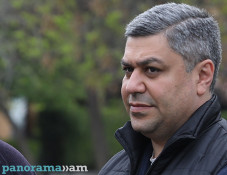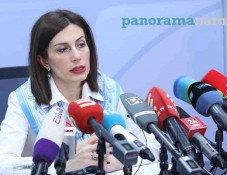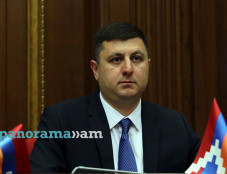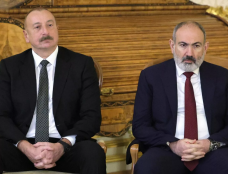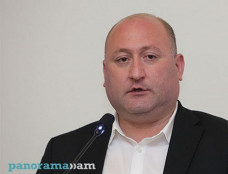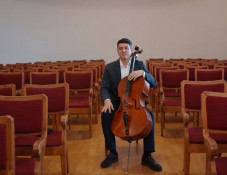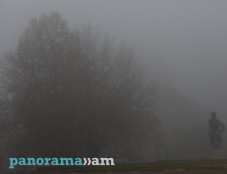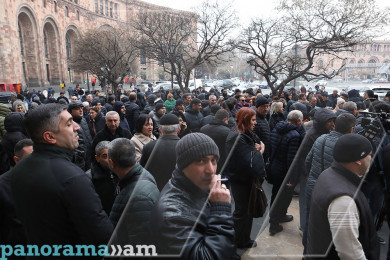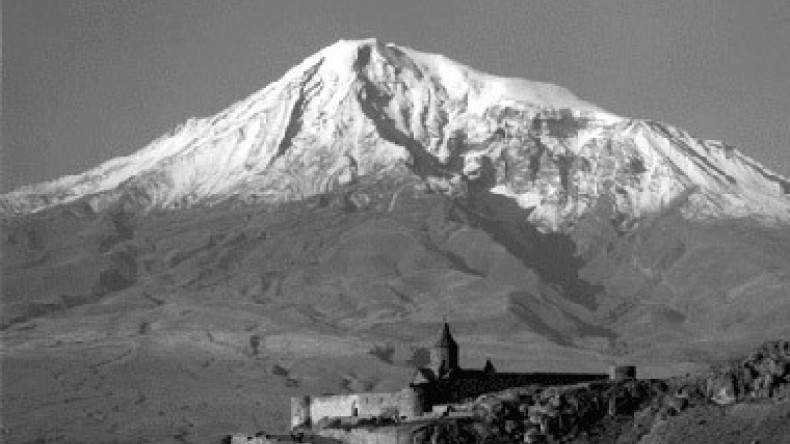
Financial Times: Armenia opens up to visitors
British “Financial Times” opens a window of “country squeezed into the highlands between Turkey and Azerbaijan, a country which became the first in the world formally to adopt Christianity” – Armenia to foreign readers. FT reporter speaks about Tatev Monastery “within whose fortified walls this small group is sitting, was once a great centre of learning, home to a thousand souls”, the impressions he got after his visit to Armenia.
“Below the monastery, the Vorotan ravine plunges 1,000 feet into wooded depths. To reach it by car, we had snaked round the mountains for an hour, descending to cross Satan’s Bridge before rising again to Tatev, and to a sense of peace that you might imagine has persisted for the past 11 centuries. But telltale cables above our heads herald a new dawn. Earlier this month, the world’s longest cable car opened here, linking Tatev with Halidzor village in the valley below,” the author says. “Carrying 25 passengers at a time over a 5.7km long cableway, at a speed of 23 miles an hour, it is expected to ferry 20,000 people a year to the dizzy heights of Tatev, cutting the journey time to 11 minutes. The 11-month, €13m project of a Swiss-Austrian firm is the first stage of a €36m plan to provide tourism facilities at the monastery and surrounding gorge. It’s symbolic of a process going on across Armenia, with improvements to roads, hotels and other tourism facilities helping to open up the country to visitors.”
The writer recalls her first visit to Armenia: “I first went to Armenia in the 1990s, in the early years of independence, after earthquake and war with Azerbaijan had devastated the economy. A combination of fuel shortages and atrocious infrastructure made it impracticable to venture far beyond the capital’s hinterland. Today, however, good roads make their way into dizzyingly remote reaches, encouraging a nascent tourism industry. And although throwbacks to Soviet hospitality linger on – such as the Armenia Hotel in the spa town of Jermuk, where the corridor to dinner is lined with doors enticingly labelled Colonoscopy, Gastroscopy, Proctologist – foreign companies have arrived to manage Yerevan’s classic hotels. For something more distinctive, however, it is the Tufenkian Heritage Hotels chain that leads the way. Characterised by excellent service, fresh local food, personal touches, Frette sheets and wonderful views, they welcome travellers in Yerevan, Lake Sevan, Lori and Dilijan – the lushly-forested region and favoured holiday spot of Soviet musicians, where Benjamin Britten spent the summer of 1965.”
In 301, Armenia became the first nation in the world formally to adopt Christianity, and, 100 years later St Mesrop Mashtots invented his spikily impenetrable alphabet of 36 “warrior” letters – on which Lord Byron was to sharpen his wits at the Armenian Monastery in Venice – to translate the Bible. Against a history of invading Persians, Byzantines, Arabs and Turks, and periodic pogroms, not least the genocide of 1915 attested to by a memorial in the capital city of Yerevan, “the twin pillars of religion and language have stood in defence of national identity,” the author sums up.
Newsfeed
Videos








